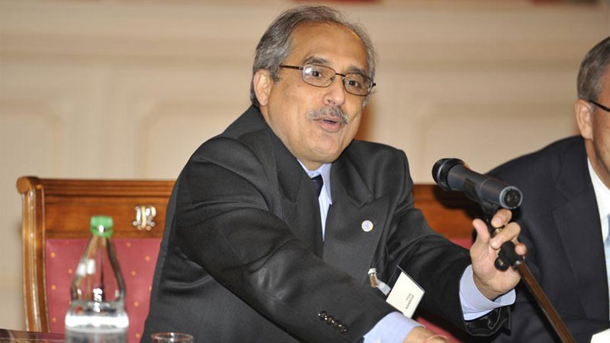UNITED NATIONS—The UN secretary-general’s special adviser on Burma says the resource-rich but desperately poor nation has the potential to become an Asian tiger if it promotes investment, eases financial restrictions and finds experts to develop the country.
Vijay Nambiar gave an upbeat briefing to a group of reporters on Tuesday, ahead of Secretary-General Ban Ki-moon’s visit to Burma this weekend, saying that after more than 20 years of “almost self-inflicted hibernation” the country has undergone rapid and dramatic political changes.
“I think the pace as well as the nature of the change has been in some ways extraordinary, and perhaps far in advance of what had been envisaged” by the military, which ruled the country for 50 years, he said.
Since last year, the new government headed by President Thein Sein has overseen a wave of political reforms and won wide praise for progress toward democratic rule. The government has freed political prisoners, signed truces with rebel groups, and organized April 1 by-elections deemed free and fair that were overwhelmingly won by opposition leader Aung San Suu Kyi’s party and earned the Nobel Laureate a seat in Parliament after years of repression and house arrest.
“Today, after more than 20 years, Burma has a Constitution, elections and a Parliament,” Nambiar said, which despite flaws never happened before.
He said last year’s meeting between Thein Sein and Suu Kyi “has been a major game changer,” and he praised the president’s statesmanship and the opposition leader’s agreement to contest the April election despite her opposition to the Constitution which was drafted during an era of military rule and gives inordinate power to the military.
Another “game-changer,” Nambiar said, was the decision of the 10-member Association of Southeast Asian Nations to choose Burma to chair the organization in 2014.
The recent suspension of US and European Union sanctions, which were imposed in the late 1990s to punish Burma’s former iron-fisted military rulers, has also been important, he said.
But Burma’s progress towards democracy suffered a hiccup on Monday when Suu Kyi’s party, the National League for Democracy, refused to take its 43 new seats in Parliament because of a dispute over the lawmakers’ oath which says they must “safeguard the constitution.” It wants the word “safeguard” replaced with “respect.” Party officials said they expect the issue to be resolved soon.
“I think there is wisdom on both sides to get through this,” Nambiar said. “I can’t see them going through elections and not solving this.”
He said one of the most important imperatives today is to develop Burma, which he described as a country “twice the size of England or France with a population much larger than Afghanistan and Iraq put together which has had 60 years of conflict.”
According to the International Monetary Fund, Burma’s population in 2010 was 50.5 million and the country ranks 149th out of 185 on the UN’s Human Development Index which measures the quality of life.
“There is a critical need for external investment, for easing of financial restrictions, of currency reform,” Nambiar said. “All these areas are extremely necessary—and quickly.”
He said in some ways the economic changes are “a little more intimidating” than the political changes because with the transition now taking place in the country “there is going to be this huge rush in terms of investment and financial attention—even aid attention to Burma—and the question of how to cope with it.”
It is going to require expanding the capacity of government institutions and changing regulations, deciding what kind of internal and foreign investments are needed, and planning to develop the country’s private sector, he said.
Nambiar, who is Ban’s chief of staff, said the first thing the UN plans to do is try and help the government prioritize its development plan.
He noted that the government is bringing back some of its citizens with expertise who have been living overseas, but “there is a huge lack of human resources capability.”
Once these requirements are met, Nambiar said, “I think there is a strong possibility that Burma can emerge as a tiger.”
Looking ahead, he said there is also a generational change taking place in Burma, including in the military and younger leaders, even in the army, are going to face the same kind of challenges as their counterparts elsewhere in the world.

















